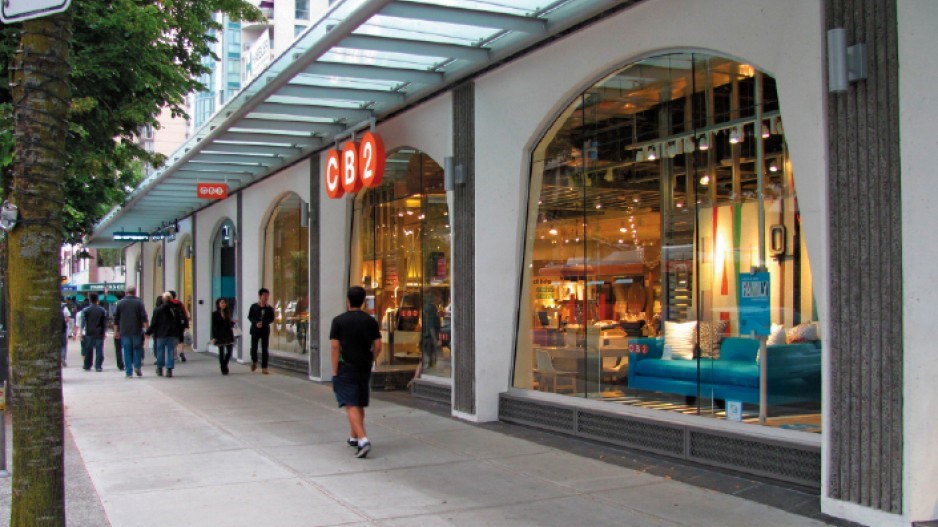Over the past two years RealNet Canada Inc. has offered a helpful analysis of the long-term value of investment properties in Metro Vancouver.
The study of “created value” examines differences in the selling and purchase prices of resale properties in the 12-month period ending June 30 of each year.
During the latest 12-month period, resales of investment properties accounted for 29.3% of transactions, down from 33.8% in the 12 months ended June 30, 2014.
Now drawing on an 82-month run of data, RealNet has calculated the average compound growth in the value of Metro Vancouver investment properties at 7.7%. This is unchanged from last year and down from 9.4% in the study’s initial iteration.
The shift in returns suggests that growth in property values might have plateaued – something Avison Young CEO Mark Rose suggested when he was in Vancouver earlier this year, noting that time was right for a repricing of some assets – while underscoring the strength of particular types of properties.
Retail again dominated resale trades, for example, as well as posting strong growth in value – a function, often, of the properties’ potential to accommodate high-density residential development.
Meanwhile, office properties also posted slightly stronger appreciation this year.
Both sectors outperformed the industrial and apartment sectors.
On the one hand, apartment properties have enjoyed strong pricing, limiting year-over-year gains. On the other, older industrial properties typically up for resale are languishing, trading at bargains while new and highly efficient properties command top dollar.
Office values
RealNet isn’t the only firm looking at commercial property values.
Jones Lang LaSalle (JLL) recently released its ranking of the most expensive streets in Canada for office space. Lower Burrard Street came out near the top with the highest asking price in the city and the second-highest in the country at $66.06 per square foot.
Overall, Burrard Street ranked third in the country for average asking lease rates, at $58.87 per square foot.
The ranking is based on six top-tier properties at the north end of the street, which JLL executive vice-president Mark Chambers believes are solid enough to retain their value regardless of space about to complete.
The big question in terms of lease rates – and the cash flow (read: value) new properties offer owners – is the tide of sublease space hitting the market.
In recent weeks, space preleased at 745 Thurlow and 1021 West Hastings has returned to the market, notably four floors by SNC-Lavalin. While the retrenchment by engineering and consulting firms has been a familiar story, it will also shape the ones that emerge in the months ahead.
“The story will be what does [sublease space] do to the market and the floors that remain unleased in the new towers,” said Chambers, who was a panellist at the Vancouver real estate leasing conference at the end of October regarding the churn in the market. “That will be a driver in our market; the next quarter, for sure.”
Chambers’ hunch – also expressed by panellists at the October conference – is that landlords will be amenable to shorter leases and flexible terms if it means maximizing the value of sublease space.
Industrial values
Appreciation of industrial properties on resale in Metro Vancouver has taken a hit over the past three years, dropping from a compound rate of 8.8% in 2012 to just 5.8% in the latest 12-month period, according to RealNet Canada Inc.
But that doesn’t mean the properties aren’t contributors to the economy, as a Real Property Association of Canada (REALPac) report released last week notes.
REALPac numbers indicate that industrial properties contribute $21.7 billion to the national economy. While the contribution of B.C. properties wasn’t immediately available, a recent report for Colliers International sheds some light on the local situation.
Approximately 40.1% of the economic impact is from capital investments, while income taxes on industrial property investments account for 12%. Property management and brokerage fees account for 8.5% of the impact.
Property taxes weren’t broken out, but total in the billions nationally. In the case of Metro Vancouver, Colliers deems them “one of the largest ongoing expenses for occupiers.”
Compounding the contribution of tax revenues are the fees and other code requirements municipalities demand, which in sum have helped boost development and construction costs by 33% in the Lower Mainland since 2012.
Small wonder, then, that capital costs related to new buildings and renovations are the single biggest source of industrial real estate’s economic impact.




